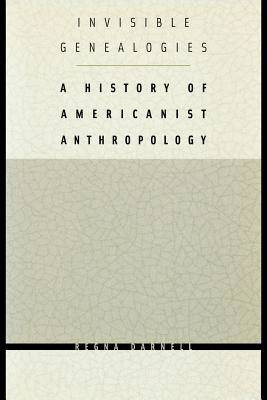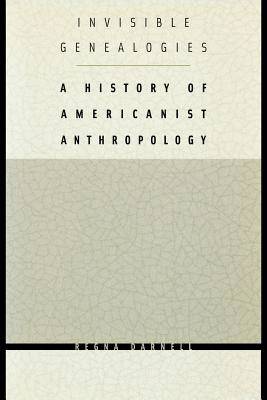
- Afhalen na 1 uur in een winkel met voorraad
- Gratis thuislevering in België vanaf € 30
- Ruim aanbod met 7 miljoen producten
- Afhalen na 1 uur in een winkel met voorraad
- Gratis thuislevering in België vanaf € 30
- Ruim aanbod met 7 miljoen producten
Zoeken
Omschrijving
Invisible Genealogies is a landmark reinterpretation of the history of anthropology in North America. During the past two decades, theorizing by many American anthropologists has called for an "experimental moment" grounded in explicit self-reflexive scholarship and experimentation with alternate forms of presentation. Such postmodern anthropology has effectively downplayed connections with past luminaries in the field, whose scholarship is perceived to be uncomfortably colonialist and nonreflexive. Ironically, as the American Anthropological Association nears its one hundredth anniversary and interest in the history of the discipline is at an all-time high, that history has been effectively presented as removed from and irrelevant to the new generation. Invisible Genealogies offers an alternative, compelling vision of the development of anthropology in North America, one that emphasizes continuity rather than discontinuity from legendary founder Franz Boas to the present. Regna Darnell identifies key interpretive assumptions and practices that have persisted, sometimes in modified form, since the groundbreaking work of A. L. Kroeber, Boas, Ruth Benedict, Edward Sapir, Elsie Clews Parsons, Paul Radin, Benjamin Lee Whorf, and A. Irving Hallowell during the founding decades of anthropology. Also highlighted are the Americanist roots of postmodern anthropology and the work of innovative recent scholars like Claude Lévi-Strauss and Clifford Geertz.
Specificaties
Betrokkenen
- Auteur(s):
- Uitgeverij:
Inhoud
- Aantal bladzijden:
- 374
- Taal:
- Engels
- Reeks:
Eigenschappen
- Productcode (EAN):
- 9780803266292
- Verschijningsdatum:
- 1/03/2001
- Uitvoering:
- Paperback
- Formaat:
- Trade paperback (VS)
- Afmetingen:
- 152 mm x 229 mm
- Gewicht:
- 539 g

Alleen bij Standaard Boekhandel
+ 85 punten op je klantenkaart van Standaard Boekhandel
Beoordelingen
We publiceren alleen reviews die voldoen aan de voorwaarden voor reviews. Bekijk onze voorwaarden voor reviews.











